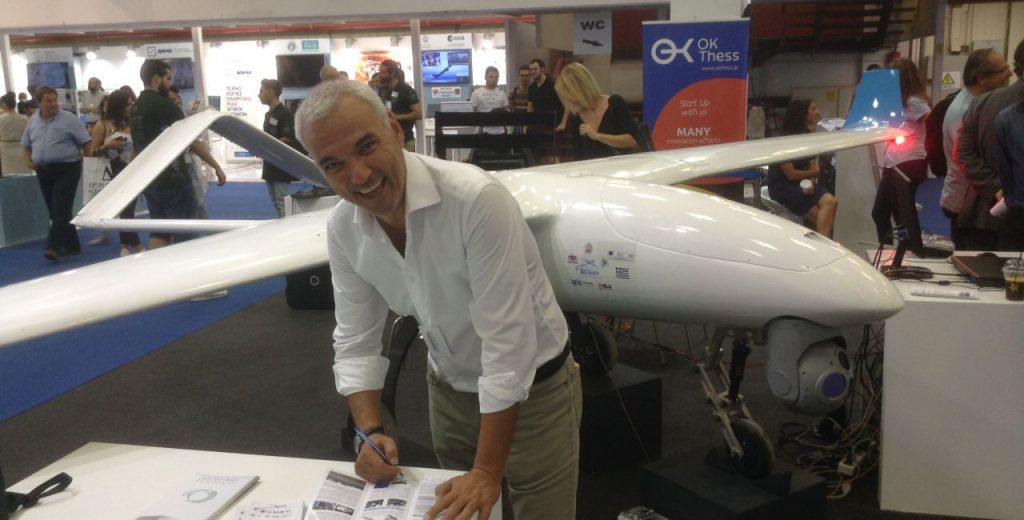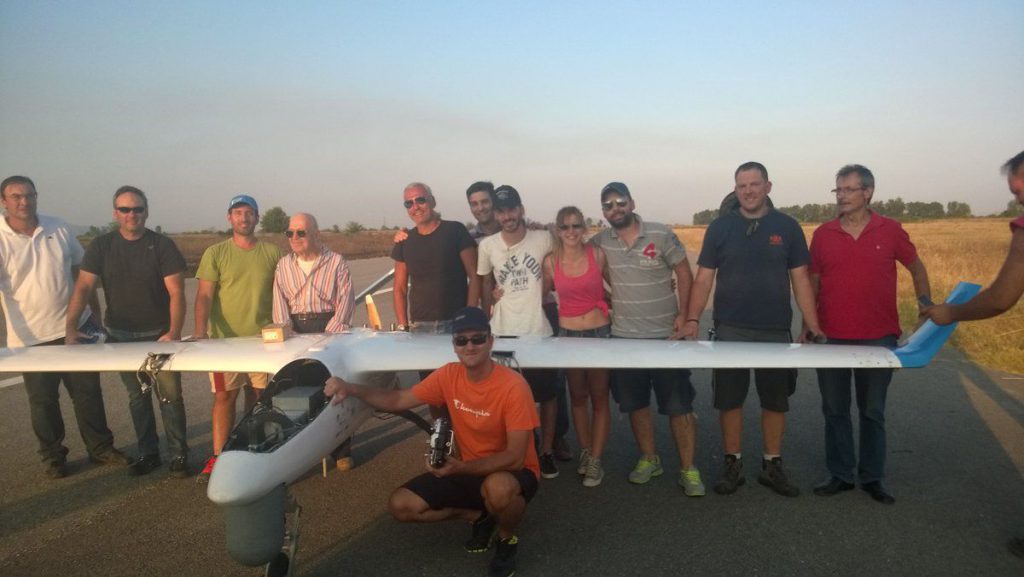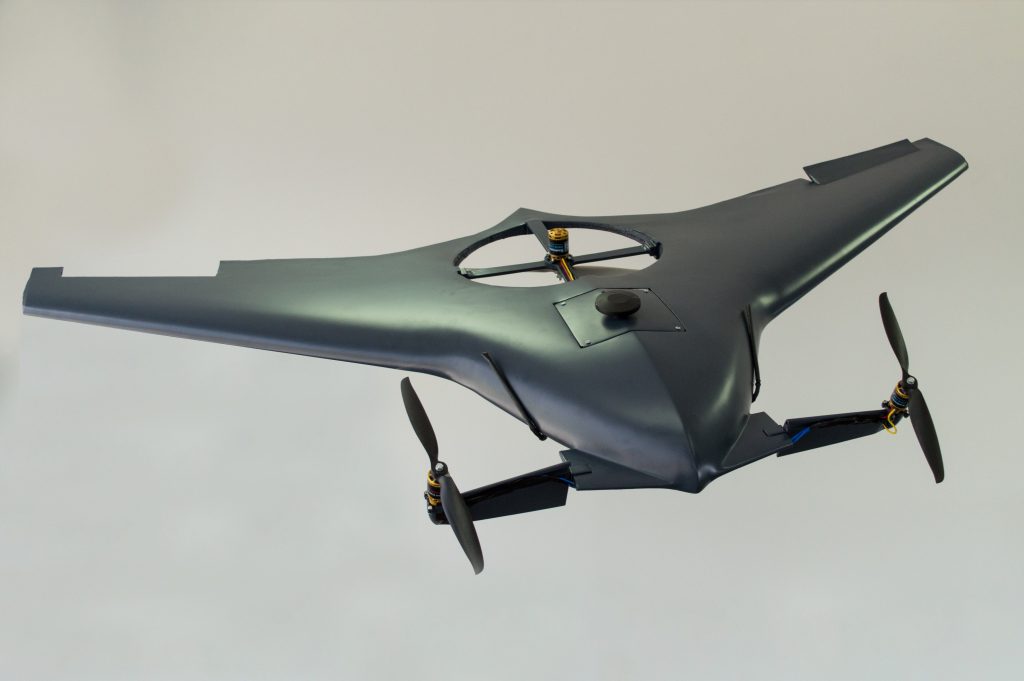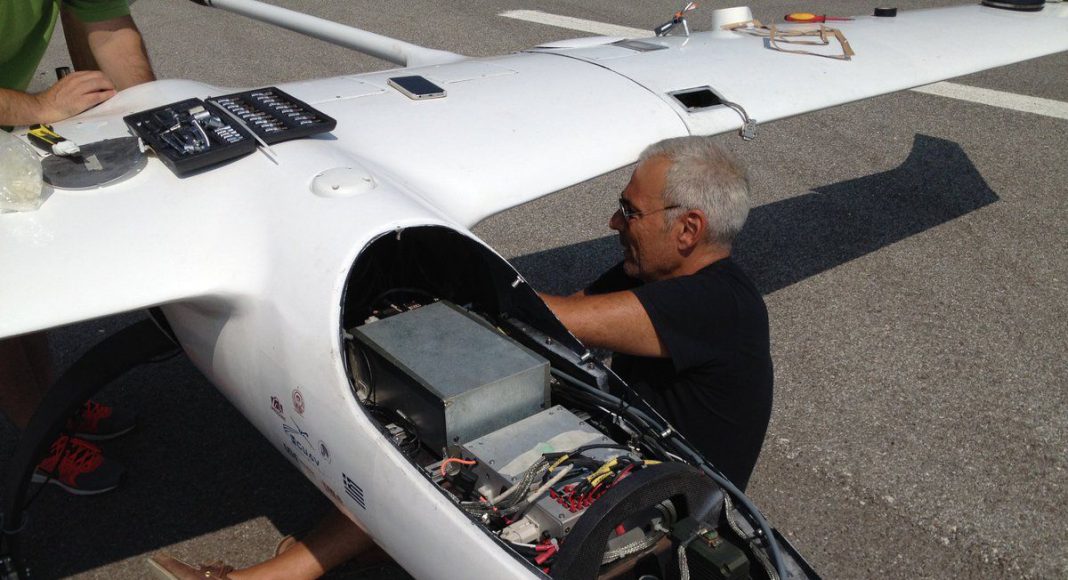Professor Kyros Hyacinth speaks to The Greek Herald and highlights the positive advancements made by Greece in creating the first drones in the country.
Drones made in Greece
“The only way to discover the limits of possibility is to go beyond them and reach the impossible.”
The professor, condemns the lack of merit, vision and distrust that sweeps Greece, but praises the innovative Greek teams responsible for producing UAVs (Unmanned Aerial Vehicles), otherwise known as Drones. Professor Hyacinth believes these innovations can give the country solutions to a number of issues, including defence against Turkey, forest fire and rescuing people in inaccessible areas.
The Professor talked to The Greek Herald about the difficulties he faced until he produced his vision to transform Greece into a technologically advanced country.
“It was in 2010, I remember, I had a serious meeting where my fellow academics from the Hellenic University, along with researchers from the Hellenic Institutes, all of our Engineers, discussed what areas Greece could invest in research and production,” said Professor Hyacinth.
“Immediately, suggestions were made on individual technologies related to fast wired and wireless communications, image recognition, development of specialised software for managing large volumes of data, among many others. My colleagues, then were older than me. In my quest for something “bigger” my mind came to UAVs, a technology that had already begun to invest in countries with a tradition of boosting new technologies, such as the US and Israel. The idea came to the table, but a few colleagues gave me weight. Very few… But fortunately, the great opportunity was provided under the NSRF, where proposals for research and development could be submitted by consortia of research entities and Greek companies. So, in the summer of 2011, three HEIs and three Greek companies submitted our proposal for the design and development of a UAV that will perform civil protection operations. After 1.5 years, funding approval was given to a total budget of 2M €, with a project coordinator: myself,” the Professor recalls, speaking to The Greek Herald.

The first Greek Drone in the air
About three years ago, the plan took off.
“In 2016, exactly three years later, we were able to land the first large, fixed UAV wing, with a maximum take-off weight of 180Kg, equipped with cameras and capable of performing large-scale surveillance missions. All the members of the consortium believed in the project from the beginning. But all the members of the consortium knew from the start that it was a high-risk project. But without risk, success does not come. I always believed in this provocative risk and even when I knocked on doors to promote what our consortium did and people were not convinced by the great risk, I used to say ‘but here’s the beauty! The big risk! And that Greece can show that, it too, is developing technologies that are fully compatible with its needs and that will keep young children highly skilled in our homeland,” said the passionate Professor.

The eyes in the Aegean and the production line in Greece
But where could these innovations actually help?
“Especially for Greece? Everywhere! And right away!”, claims Kyros Hyacinth. “Forest fire surveillance, natural disaster assessment (which unfortunately has become increasingly common in our country in recent years), rescuing people in inaccessible or inaccessible places, transporting essentials to remote areas of our homeland where there is no daily routine connection (such as barren islands), precision farming, spraying and surveillance and guarding of borders and areas of special interest in the Aegean. We do not need to go into detail, but we can all understand how useful it is for Greece to have eyes over the Aegean and its borders, as other countries do on their borders and in areas of great interest. Production of Greek UAVs is something that can be done at 100% production line level! It is absolutely possible and necessary.”

Greece’s resources for innovation
While Professor Hyacinth is certainly a patriotic Hellene, he does believe his innovations would have reached extraordinary levels if they were completed in an area other than Greece.
“Surely, if I were abroad, with a group of 25 people, say in Australia or America, somewhere in California, after 7 years, we would have reached another level. And I say it with a grievance because I always encountered distrust in Greece and many times I felt that efforts had to stop because I was just wasting my time,” he explains.
“I believe that our scientists want two simple things: meritocracy and vision. Others can make sacrifices (pay, Greek bureaucracy and a lot of other things daily), but if we give them the feeling that those who deserve it will go ahead, they will be able to accomplish their vision in Greece,” he concludes to The Greek Herald.
